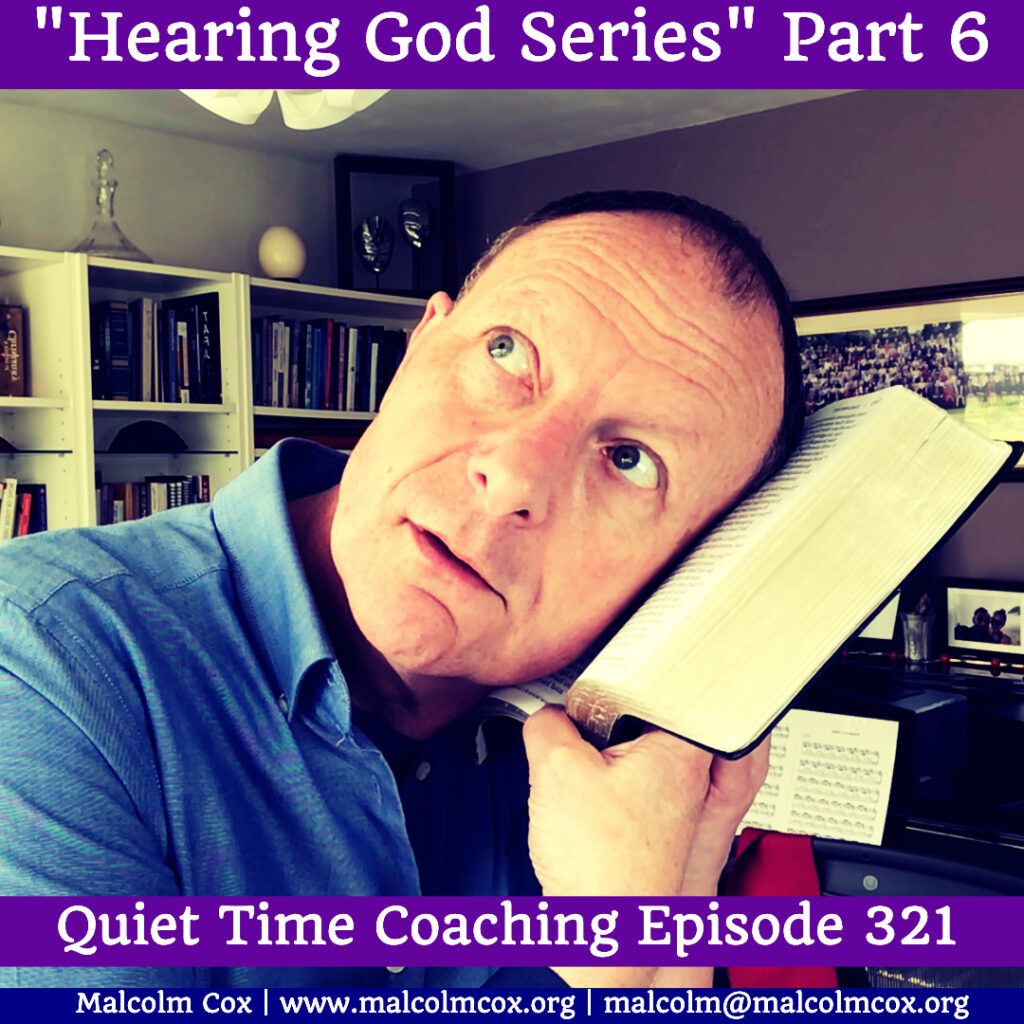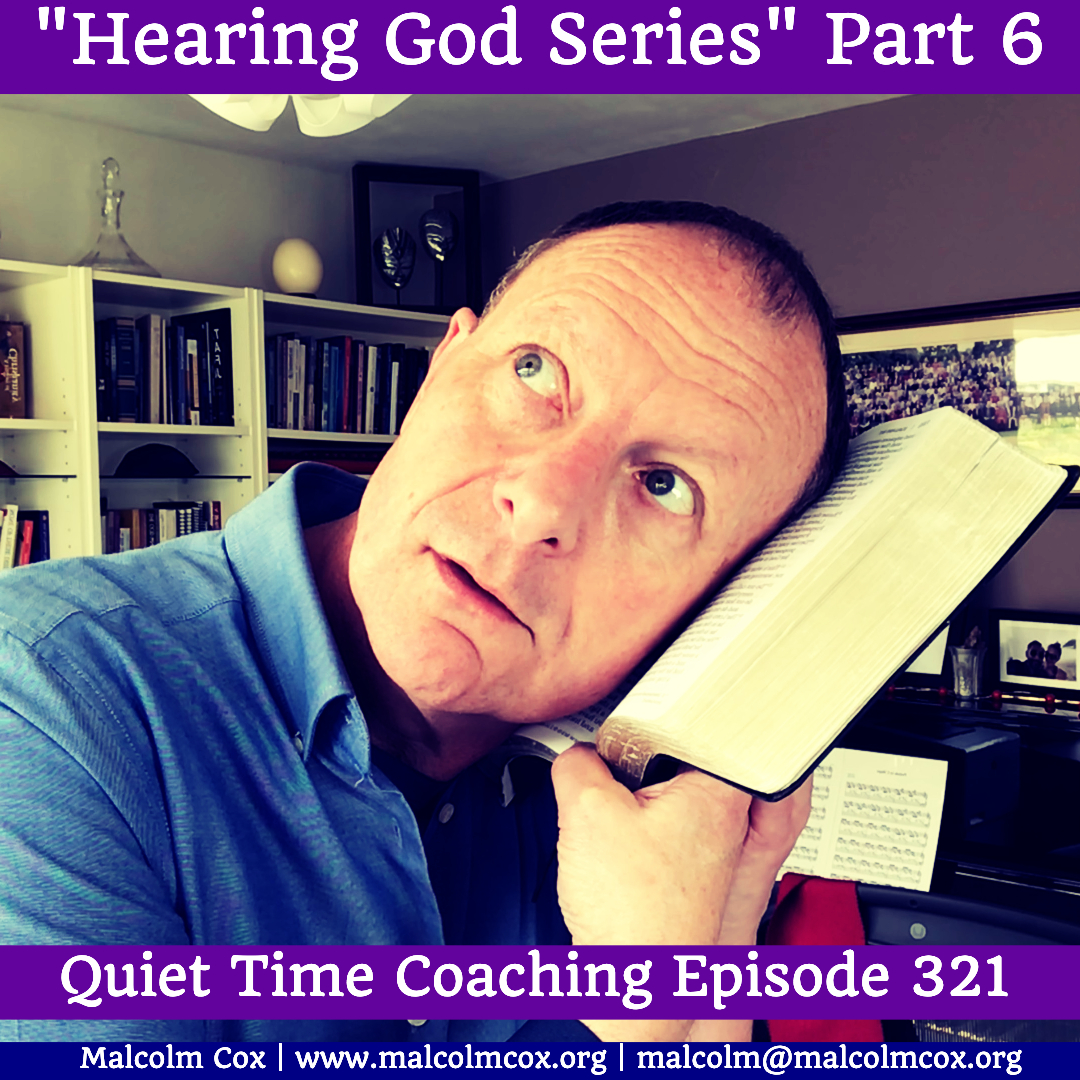
Hearing God: Developing a Conversational Relationship with God; Dallas Willard
Today we look at Chapter 5: The still small voice and its rivals, 86
“A third time the LORD called, “Samuel!” And Samuel got up and went to Eli and said, “Here I am; you called me.” Then Eli realized that the LORD was calling the boy. So Eli told Samuel, “Go and lie down, and if he calls you, say, ‘Speak, LORD, for your servant is listening.’ ” So Samuel went and lay down in his place.
The LORD said, “Go out and stand on the mountain in the presence of the LORD, for the LORD is about to pass by.” Then a great and powerful wind tore the mountains apart and shattered the rocks before the LORD, but the LORD was not in the wind. After the wind there was an earthquake, but the LORD was not in the earthquake. After the earthquake came a fire, but the LORD was not in the fire. And after the fire came a gentle whisper.”
(1 Samuel 3:8–9; 1 Kings 19:11–12 NIV11)
It’s not all about the fireworks from heaven
Is the experience of Samuel instructive here? He didn’t know what the voice was or that it was possible for God to speak in such a way. Perhaps surprising confusion is more common than an expectation and an immediate recognition of the voice of God. That also fits with Peter’s experience in Acts 10.
It is legitimate to imagine ourselves in the circumstances of the ordinary people of the Bible.
“We will be able to seek him only if we honestly believe that he might explicitly address us in ways suitable to his purposes in our lives.” 91
Biblical stories of people who hear God
Six ways in the Bible
A phenomenon plus a voice
Abraham and the fire, Genesis 15:17-18; Moses, Exodus 3:3-6; Israel, Deuteronomy 5:23; Ezekiel, Ezekiel 1-2; Jesus, Matthew 3:17; Saul, Acts 9:3-8.
A supernatural messenger or an angel
Is it an angel or the Lord, Genesis 18, 19?
Joshua, Joshua 5:13-15; 2 Kings 6:17; Matthew 26:53.
Dreams and visions
Paul, Acts 16:9 as well as 18:9; 2 Corinthians 12:1; Ananias, Acts 9:10-13; Peter, Acts 10:9-19; Jacob, Genesis 28:11-17; Joseph, Genesis 37:5-9; Joseph’s jail mates, Genesis 40:5-19; Pharaoh, Genesis 41:1-7; Nebuchadnezzar, Daniel 4:4-18. 94
An audible voice
Abraham, Genesis 22:11-12, 15-18; Samuel, 1 Samuel 3.
The human voice. 95
God speaks to us through other people.
God speaks through us to other people.
The author claims this is the most normative method for God to communicate because it is the most connected to who we are as people.
All the prophets a good example of this. They were burdened if they did not speak:
“But if I say, “I will not mention his word or speak anymore in his name,” his word is in my heart like a fire, a fire shut up in my bones. I am weary of holding it in; indeed, I cannot.” (Jeremiah 20:9 NIV11)
The human spirit or the “still small voice”, 99
The primary subjective way God speaks to us
Connect to spirit with that of God, 1 Corinthians 2:11, 16
“For who knows a person’s thoughts except their own spirit within them? In the same way no one knows the thoughts of God except the Spirit of God.
for, “Who has known the mind of the Lord so as to instruct him?” But we have the mind of Christ.” (1 Corinthians 2:11, 16 NIV11)
“God uses our self-knowledge or self-awareness, heightened and given a special quality by his presence and direction, to search ourselves and reveal to us the truth about ourselves and our world.” 100
“We are addressed by him, and spoken to by him, through our own thoughts.” 101
Our thinking is corruptible. Our minds need renewing first.
“be transformed by the renewing of your mind. Then you will be able to test and approve what God’s will is—his good, pleasing and perfect will.” (Romans 12:2 NIV11)
He likens it to God walking through our mind with a candle illuminating things. Of course, we have to let him in first. This is why submission of the willingness to be open to God is a pre-requisite of hearing from God.
Next week we will go on to look at chapter 6 of the book which is titled “The word of God and the rule of God”.
Please add your comments on this week’s topic. We learn best when we learn in community.
Do you have a question about teaching the Bible? Is it theological, technical, practical? Send me your questions or suggestions. Here’s the email: [malcolm@malcolmcox.org](mailto:malcolm@malcolmcox.org).
If you’d like a copy of my free eBook on spiritual disciplines, “How God grows His people”, sign up at my website: http://[www.malcolmcox.org](http://www.malcolmcox.org/).
Please pass the link on, subscribe, leave a review.
“Worship the LORD with gladness; come before him with joyful songs.” (Psalms 100:2 NIV11)
God bless, Malcolm


